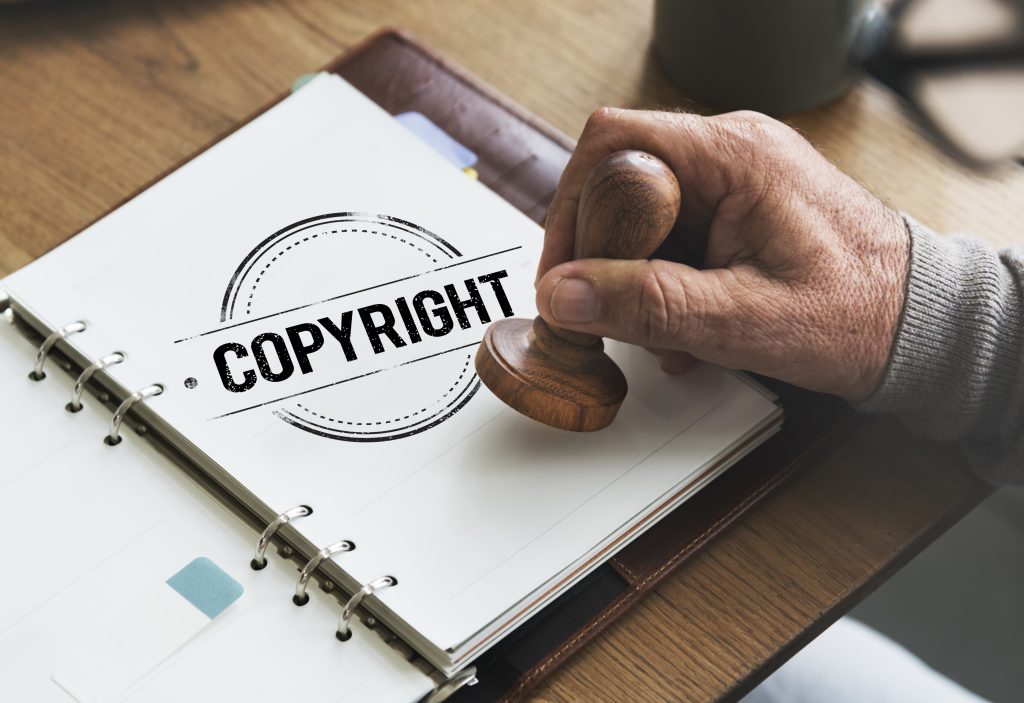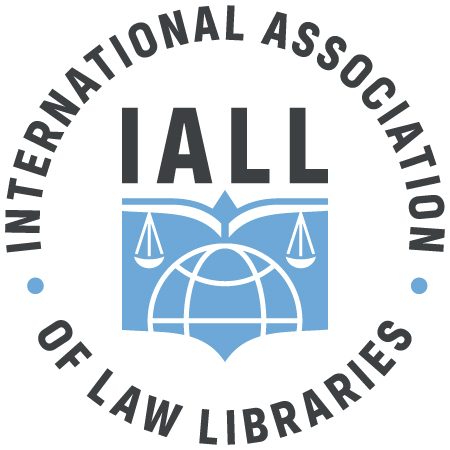
By: Trung Quach
Manager of Reference and Research Services, High Court of Australia
Secretary of the IALL Board of Directors
Have you ever wondered whether there is copyright in court judgments? I had to turn my mind to this question recently. At the High Court of Australia, we are often asked (usually by academics) about using the court’s judgments for various research purposes. Even though these judgments are freely available on sites such as AustLII and JADE, academics often seek our permission before using them, because they believe the court holds the copyright over its judgments. I was not sure if this was true, which caused me to research whether there is copyright in court judgments. And if copyright applies, who holds the copyright?
The are no simple answers to these questions in Australia. So, I decided to expand my research to other common law countries such the United States, the United Kingdom, New Zealand, and Canada. Below is my preliminary attempt at comparing how court judgments are treated by copyright laws in these various jurisdictions. First though, let’s start with a bit of history.
Background and History
Early on, private publishers were often the sole source of judicial decisions (think of nominate reports). The private reporter claimed copyright in the resulting original work. Then over time, the court provided private publishers with their decisions, so that the only work required of the publisher was editorial. When the courts started producing their own decisions, did they have copyright over those decisions? It should be noted that I am not discussing the copyright of law reports, which are produced by publishers with their editorial input. The question I’m trying to answer relates copyright in the court’s original judgment.
United States
First, let’s start with a jurisdiction that has a clear rule on this. In the United States, there is a concept known as “edicts of government”. According to the United States Copyright Office:
Edicts of government, such as judicial opinions, administrative rulings, legislative enactments, public ordinances, and similar official legal documents are not copyrightable for reasons of public policy. This applies to such works whether they are Federal, State, or local as well as to those of foreign governments.
The public policy behind this rule can be best summarise in the case of Banks & Bros. v. West Publishing Co. (27 F. 50, 57 (C.C.D. Minn. 1886)), where the circuit court opined:
[I]t is a maxim of universal application that every man is presumed to know the law, and it would seem inherent that freedom of access to the laws, or the official interpretation of those laws, should be co-extensive with the sweep of the maxim. Knowledge is the only just condition of obedience. The laws of Rome were written on tablets and posted, that all might read, and all were bound to obedience. The act of that emperor who caused his enactments to be written in small letters, on small tablets, and then posted the latter at such height that none could read the letters, and at the same time insisted upon the rule of obedience, outraging as it did the relations of governor and governed under his own system of government, has never been deemed consistent with or possible under ours.
The US Supreme Court first endorsed the edicts of government idea in 1834 in the case of Wheaton v. Peters 33 US (8 Pet) 591, 668 (1834). This case concerned the assertion of copyright in an annotated compilation of Supreme Court judgments. The Court distinguished between the reporter’s individual work and the Justices’ opinions. The court stated:
It may be proper to remark that the court are unanimously of opinion, that no reporter has or can have any copyright in the written opinions delivered by this court; and that the judges thereof cannot confer on any reporter any such right.
This doctrine was developed in a number of cases through the nineteenth century, particularly with regards to the opinions of State courts. Several States attempted to sell the exclusive right to report court proceedings to fund the publication of law reports, but these attempts were struck down by the federal courts.
In the United States, the rule is clear – there is no copyright in legislation or court judgments.
United Kingdom
Unlike the US, the UK operates under the concept of Crown copyright, which provides that the monarch has a monopoly on the publications of laws.
As documented by Joseph Chitty in his 1820 Treatise on the Law of the Prerogatives of the Crown:
As executive magistrate, [the King] has the right of promulgating to the people all acts of state and government. This gives the King the exclusive privilege of printing, at his own press, or at that of his grantees, all Acts of Parliament, proclamations, and orders of council.
The idea of Crown copyright is embodied in the Copyright Act 1911, which states that there is Crown copyright for work “prepared or published by or under the direction or control of His Majesty or any Government department.” This means that all legislation attracts Crown copyright. However, there is no specific mention of court judgments. Presumably, Crown copyright covers court judgments, but that has never been definitively tested. This has led some to argue that Crown copyright does not apply to court judgments. However, if the Crown does not have copyright to court judgments, does that mean that the courts or individual judges own the copyright? The answer to those question remains unclear.
As the 1911 Copyright Act was the basis for copyright law throughout the British Empire – it has influenced the laws of the many common law countries including New Zealand, Canada and Australia.
New Zealand
Up until 2001, New Zealand followed the UK’s idea that the Crown had copyright over the laws.
Then on 1 April 2001, the Copyright Act 1994 came into effect. Section 27(1) provides no copyright in the following works:
(a) Any Bill introduced into the House of Representatives:
(b) Any Act as defined in section 4 of the Acts Interpretation Act 1924:
(c) Any regulations:
(d) Any bylaw as defined in section 2 of the Bylaws Act 1910:
(e) The New Zealand Parliamentary Debates:
(f) Reports of select committees laid before the House of Representatives:
(g) Judgments of any court or tribunal:
(h) Reports of Royal commission
Since 2001, New Zealand has followed the US model of no copyright in laws, including court judgments.
Canada and Australia
Following the UK, both Canada and Australia adopted the idea of Crown copyright. Both countries use similar language in their copyright legislation, which is modelled after the UK’s Copyright Act 1911.
In Canada, Section 12 of the Copyright Act is the provision dealing with Crown copyright. This section gives copyright to the Crown in works that are ‘prepared or published by or under the direction or control of Her Majesty or any government department’. Australia has a similar provision in its Copyright Act 1969 (Cth).
It is unclear whether Crown copyright covers court judgments in Canada and Australia. It has been argued that Crown copyright protects works created by the executive branch of the government and does not cover works of the courts. Some have raised constitutional issues of separation of power. Can the Crown (the executive branch) own the copyright of the works by another branch of government (the judiciary)? This thorny question raises fear of possible censorship by the government over the judiciary as was noted by Sir Laurence Street: “The spectre of political censorship lurks not far behind assertions of copyright in judgments.”
In Canada and Australia, the question of whether there is copyright in court judgments, and if so who owns it, remains unclear. Neither country has passed legislation similar to New Zealand, nor has the issue been tested through litigation.
Conclusion
I had no idea that the answer to my initial question of whether there is copyright in court judgments would have such varied answers depending on the jurisdiction. As for my home country of Australia, I’m quite perplexed that there has never been a definitive answer to this question. The information I have provided above is from my preliminary research so far. If anyone has more information or would like to share how their own country approaches this issue, please contact me at: trung.quach@hcourt.gov.au
References
Dilan Thampapillai, ‘Crown Copyright – The Nature of the Crown and the Prerogative’ (2007) 14 eLaw Journal 283
Joseph Chitty, A Treastise on the Law of the Prerogatives of the Crown: And the Relative Duties and Rights of the Subject (J Buttterworth and Son, 1820)
Mark Perry, ‘Judges’ Reasons for Judgments: To Whom Do They Belong?’ (1998) 18 New Zealand Universities Law Review 253
Michael Taggart, ‘Copyright in Written Reasons for Judgment’ (1984) 10(2) Sydney Law Review 319
Noel Cox, ‘Copyright in Statutes, Regulations, and Judicial Decisions in Common Law Jurisdictions: Public Ownership or Commercial Enterprise?’ (2006) 27(3) Statute Law Review 185
Simon Stern, ‘Copyright Originality and Judicial Originality’ (2013) 63(3) University of Toronto Law Journal 385
Sol Picciotto and Matthias Ruete, ‘Copyright in Court Judgments and Reports’ (1985) 6 Journal of Media Law and Practice 75
This Blog contains entries by members of the International Association of Law Libraries on issues germane to the Association’s areas of focus. Views expressed in an individual entry only represent the views of the author, and not those of the International Association of Law Libraries or the author’s employer.
